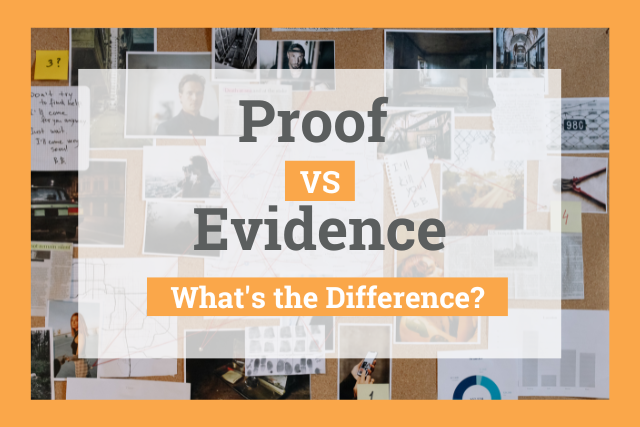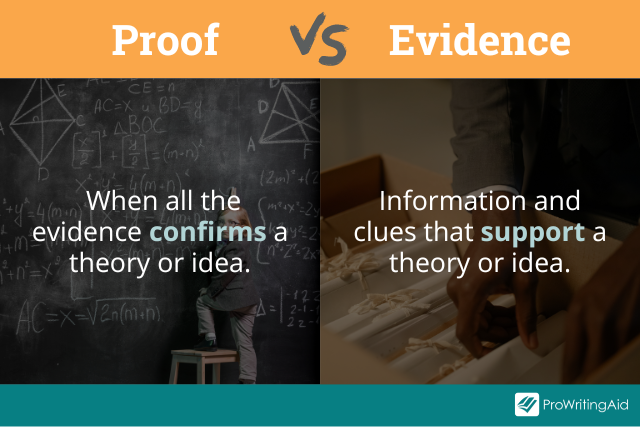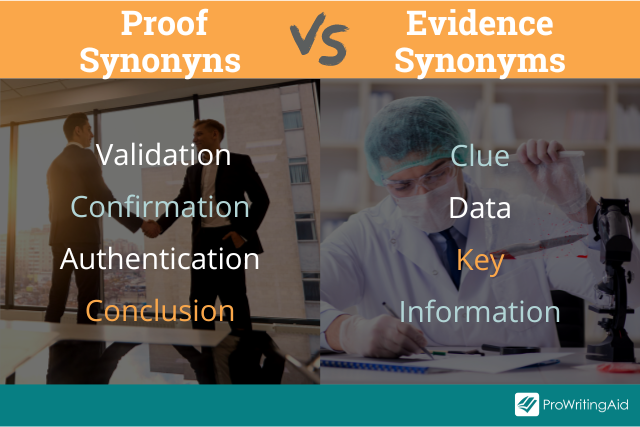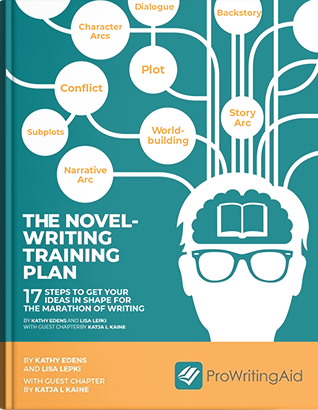
Proof and evidence have related meanings, but they are not the same thing. Proof proves something is true, while evidence is like a clue.
The difference between evidence vs proof lies in how conclusive it is.
Today, we’re going to break down exactly what these two words mean and how they differ.

What Is Evidence?
The Oxford dictionary defines evidence as “the facts, signs, or objects that make you believe something is true.”
The word evidence is commonly used in law, court, or criminal investigations. In these settings, evidence refers to the various facts in a case that point to guilt.
One piece of evidence alone is not usually enough to prove guilt. You must have enough evidence to determine if someone is guilty.
For example, evidence in a murder investigation might look like:
- The murder suspect was the last person to see the victim.
- The suspect’s fingerprints were found on the victim’s door.
- The suspect withdrew a large amount of money at an ATM near a gun store.
Science also uses the term evidence to prove theories. These are the facts that suggest a scientific hypothesis is true. In science, evidence comes from observations and experiments.
Some synonyms of evidence are:
- Clue
- Data
- Key
- Information
What Is Proof?
When all the evidence points to a concrete conclusion, you have proof. Proof is something that establishes certainty.
In other words, proof is what proves something is true beyond a reasonable doubt.
In the justice system, police officers and attorneys must provide conclusive proof of someone’s guilt or innocence. They use evidence to present a logical argument establishing this proof.
In science, when data supports a hypothesis 100% of the time, it is considered proof.
Here are some synonyms of proof:
- Validation
- Authentication
- Confirmation
- Conclusion

What’s the Difference Between Proof vs Evidence?
The difference between evidence vs proof all comes down to whether or not something is completely proven to be true. Proof is conclusive; evidence is not necessarily conclusive.
Evidence and proof are closely related. Proof comes from evidence. We gather evidence to prove something or support an idea.
When we have enough evidence, data, or facts, we might find proof. Evidence can also be misleading.
Remember our murder suspect example?
Maybe their fingerprints were on the door because they hung out with the victim earlier that day.
Maybe they made a large cash withdrawal to buy something off Facebook Marketplace.
In legal settings, proof is when all the evidence points to guilt “beyond a reasonable doubt.”
In short, the difference between evidence and proof is whether there is any doubt left about the truth.
Examples of Proof vs Evidence in Literature
A great example of evidence and proof in literature comes from the play (and classic film) 12 Angry Men.
The entire play takes place in the jury deliberation room.
The jury must determine whether an 18-year-old impoverished boy is guilty of murder. If he is, he’ll be executed by electric chair.
The evidence is convincing at first:
- A neighbor witnessed the murder through the window of a passing train.
- Another neighbor heard the suspect threaten to kill his father, heard a body drop, then saw the suspect run down the stairs.
- The suspect had recently purchased and lost a switchblade like the one found at the crime scene.
Soon, the jurors realize that the passing train would have kept the second witness from hearing the murder.
The apartment layout would not have allowed the teen to get out of the apartment in the proposed time frame. The first witness had poor eyesight.
There is reasonable doubt, so while there is evidence, there is not proof.
Understanding the difference between evidence and proof can be helpful for crime writers, legal students, and anyone who enjoys reading and writing police procedurals.


